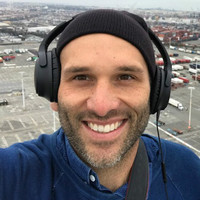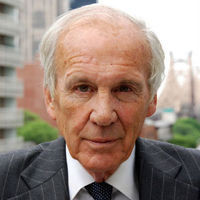Alexis C. Madrigal is an editor-at-large for Fusion, where he’s producing the upcoming podcast, Containers.
“Sometimes you think like, 'Man the media business is the worst. This is so hard.' When you spend time with all these other business people, you probably are going to say, ‘Capitalism is the worst. This is hard.’ Competition that’s linked to global things is so hard because global companies are locked in this incredible efficiency battle that just drives all of the slack out of the system. Like media, there’s no slack left, and I don’t know where things go after that.”
Thanks to MailChimp, Stamps.com, and Casper for sponsoring this week's episode.


















